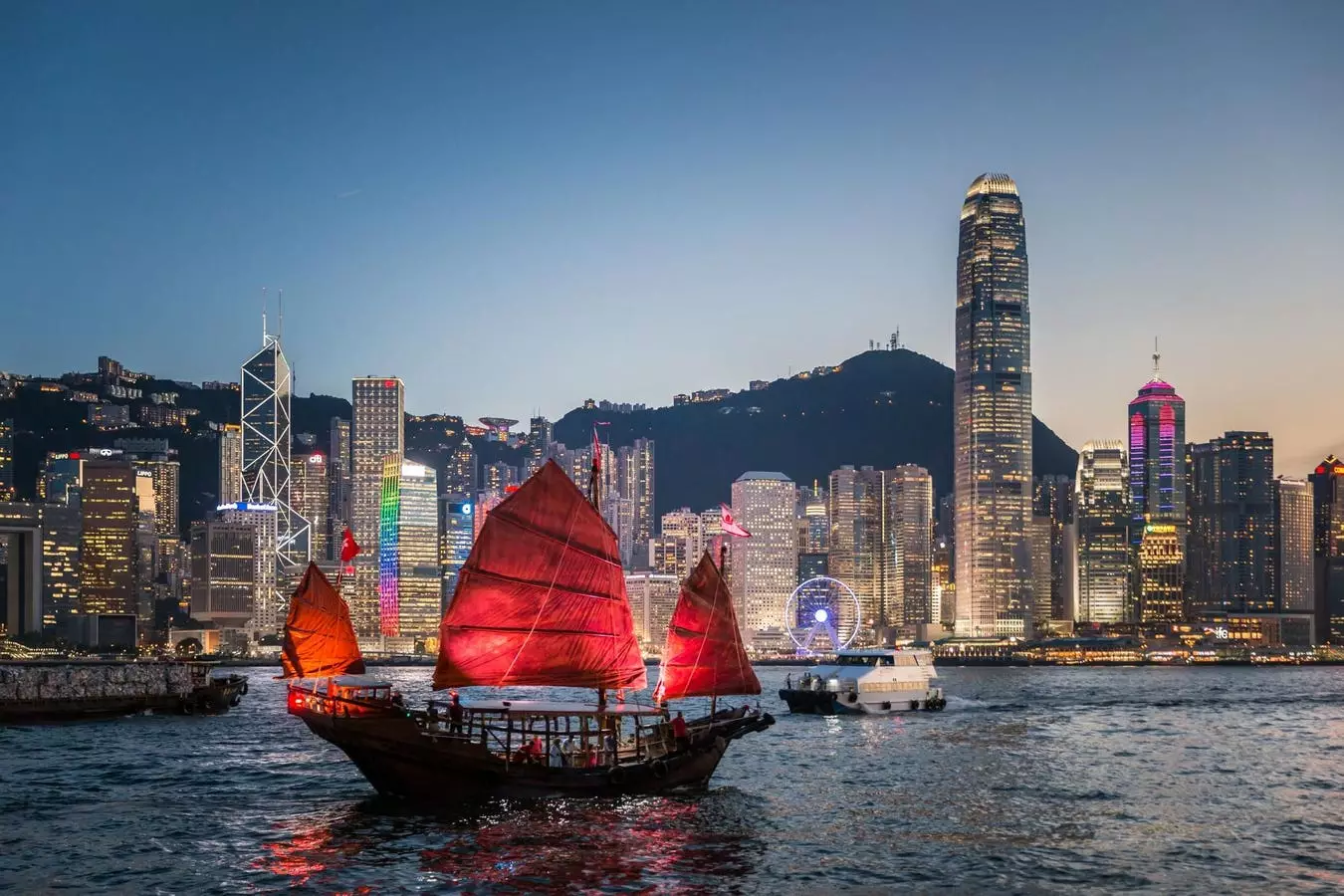In a bold move to encourage tourism and capitalize on the booming whisky industry, Hong Kong has reduced its spirits tax from a staggering 100% to a nominal 10%. This shift comes at a critical time for the global whisky landscape, as the Asian market is projected to be worth a remarkable $33.8 billion. The implications of this change extend beyond mere financial gains; they reflect a deeper strategy to foster a vibrant whisky culture in a region that has historically been at odds with the burgeoning interest in high-value spirits.
Until this month, Hong Kong maintained one of the highest import tax rates on spirits worldwide, applying a full 100% tax on all beverages over 30% ABV. While the original intent of this tax was to curb binge drinking—a commendable public health aim—it inadvertently suffocated the domestic whisky market. The rising global enthusiasm for whisky meant that enthusiasts were increasingly disconnected from local offerings, undermining the potential for a thriving local market.
The Scotch Whisky Association’s recent findings demonstrate Asia-Pacific’s dominance in the whisky sector, underlining record export values to China and significant growth in neighboring countries like Singapore and Taiwan. Yet, despite its status as a major financial hub, Hong Kong’s whisky market remained disproportionately underrepresented due to these excessive tax burdens. The 100% tax was ultimately an impediment to the development of a sustainable local whisky culture and trade.
The new tax structure, announced by Chief Executive John Lee, introduces a tiered taxation approach that reflects a nuanced understanding of market dynamics. Tax will still be levied at 100% on spirits priced up to HK$200 (approximately US$26), but any value exceeding this amount will incur a significantly reduced tax of just 10%. This allows for considerable savings on high-value bottles, creating an incentive for consumers to explore premium offerings.
For instance, a bottle priced at HK$500 will now only attract HK$30 in tax on the portion exceeding HK$200, marking a substantial reduction in total costs for the consumer. This new structure not only benefits whisky aficionados but is also tailored to nurture the luxury spirits segment, implying that Hong Kong aims to position itself as a critical player in the global spirits market. Whisky, along with other high-end spirits like baijiu, will thrive under this updated framework.
Tom MacLaren, a notable figure in the whisky community, argues that this tax reform represents a pivotal moment for whisky enthusiasts both locally and internationally. With the intent to cultivate a deeper appreciation for whisky, Hong Kong is poised to become a nexus for whisky culture. This transformation echoes past successes in the wine sector, where the removal of wine duties in 2008 propelled the city into becoming an elite wine trading hub.
Moreover, industry players are optimistic. The new tax landscape is perceived as a means to lower entry barriers for new whisky buyers while offering enhanced value to seasoned collectors. Diego Lanza, a former spirits head turned entrepreneur, underscores the importance of this shift for the bar scene in Hong Kong. He envisions a future where local establishments can compete more effectively with global centers, potentially fostering a thriving community of whisky lovers and collectors.
Nevertheless, it is crucial to address the challenges that may arise from this tax cut. While many collectors and aficionadas might not witness drastic price changes for their beloved whiskies, the ease of access to a wider array of products feels promising. Historically, whisky aficionados have resorted to circumventing the high alcohol duties by obtaining their spirits from territories with lower taxes. With the new reforms, while official tax revenue is likely to increase, the net financial benefits for local collectors may be marginal.
Furthermore, the government must keep a vigilant eye on health implications. Excessive taxation serves as a deterrent for heavy drinking; a balance must be maintained to prevent the encourage binge drinking while simultaneously fostering a thriving whisky culture.
As Hong Kong embarks on this new chapter, the ramifications of these tax reforms extend beyond the immediate financial incentives. This initiative indicates a broader cultural shift towards embracing and promoting a sophisticated whisky culture. Whether it leads to an influx of dedicated whisky bars, a surge in the collector community, or even international recognition as a premier whisky destination, only time will tell. Emerging conversations about the implications on both primary and secondary markets will be crucial to observe in the coming months. In this evolving narrative, all eyes are now on Hong Kong, ready to witness its transformation into a true whisky haven.

